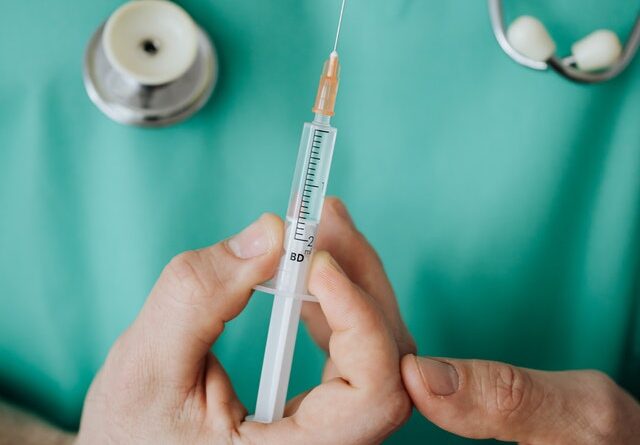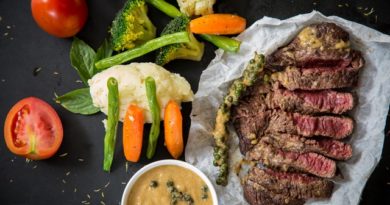Infecting a volunteer with coronavirus to develop a vaccine – here’s what consent should look like
Maximilian Kiener, University of Oxford
The World Health Organization (WHO) recently announced that it supports challenge trials against COVID-19. Challenge trials deliberately expose people to infectious diseases to test vaccines or treatments.
They have long been key to clinical research and promise to be of even greater importance now. Researchers believe that challenge trials could significantly speed up the development of a COVID-19 vaccine, thereby saving thousands of lives.
Despite the serious risks for participants in the COVID-19 trials, over 24,000 people across 102 countries have already offered to volunteer. One of them is Gavriel Kleinwaks, a 23-year-old undergraduate who wants to contribute to the greater good.
In an interview, published in The Atlantic, she said: “I’m young. I don’t get sick a lot. This seems like a way that I can share some of that luck. I empathize with other people.”
Another volunteer is Mabel Rosenheck, a 35-year-old historian, who shares these reasons for volunteering and is equally confident about her health. “Your body can do a lot of things that you might think it can’t,” she said.
Gavriel and Mabel could indeed make a significant contribution. But since COVID-19 challenge trials pose serious risks to participants, they can only be justified if, as the WHO stresses, participants give “rigorous informed consent”. But unfortunately, the WHO glosses over the difficult challenges consent raises.
Confront, control and compensate
To make participants’ consent as good as it can be and so justify the COVID-19 challenge trials, we need to confront participants more explicitly with the risks they face. Statistical information is not enough.
Participants need to see realistic pictures or even videos about what can happen when risks materialise. This is important because people are likely to underestimate their own risk of being harmed and be subject to “optimism bias”, where people overestimate the odds of positive events and underestimate the odds of negative events happening to them.
Optimism bias also seems exacerbated when an outcome is something people greatly identify with, just as the way Gavriel and Mabel strongly identify with the moral significance of their participation. Consider Gavriel’s “I’m young. I don’t get sick a lot,” and Mabel’s “Your body can do a lot of things that you might think it can’t.”
What’s more, we need to ensure that their consent remains as informed as it can be. This is especially important because the possibility of genuinely informed consent is very limited right now.
As the WHO concedes, “the pathogenesis of COVID-19 is currently poorly understood”. Yet we may gain new information about the virus during the trials, and if so, we need to inform participants about it and allow them to reconsider their consent.
If participants are not informed or are deprived of the opportunity to withdraw from the trial without penalty or disadvantage, their consent to continued participation will be invalidated.
Finally, we need to compensate participants. As in other challenge trials, compensation should not only comprise reimbursement, such as travel expenses to medical facilities, but also further payment (in the UK, volunteers are paid £ 3,500 to take part in challenge trials). After all, participants like Gavriel and Mabel would accept serious personal risks to make a significant contribution to the fight against COVID-19.
But payment is not made just so Gavriel and Mabel are treated identically to participants in other trials. It is also about consent.
Contrary to widespread opinion, offering money does not distort people’s judgment about risks. In fact, when people are offered payment for their participation, their consent may even be better informed because they may be more likely to realise that what they are about to do is not a small favour but a significant burden.
Admittedly, some people will experience high pressure to enrol. As the virus has also caused an economic crisis, they will consider paid trial participation their best or even only option to avoid financial ruin. In this situation, the pressure and reluctance to enrol may arguably undermine the requirement for people’s consent to be voluntary.
We cannot ignore these people’s predicaments. Their situation is often not just a consequence of personal misfortune but one of social injustice, as certain groups are particularly vulnerable to the economic decline caused by the virus.
But excluding people from participation based on their supposedly involuntary consent is the wrong response. Volunteering is not enthusiasm, and being paid doesn’t signify reluctance.
To consent voluntarily, participants need to be free from external coercion or manipulation by others, but not from financial incentives. In fact, in many areas of our lives, we act voluntarily despite financial motives.
Also, it would seem paradoxical to exclude people with financial motives from the challenge trials. After all, our aim would be to protect them, but removing what they reasonably consider their best option would hardly be a way of protecting them.
So where does this leave us? The WHO correctly highlights the importance of informed consent in justifying COVID-19 challenge trials. But the WHO left us without guidance here.
To make consent as good as it can be and so justify the COVID-19 challenge trials, we need three Cs: we need to confront participants with salient information, constantly control the validity of their consent so it remains informed, and compensate them well.![]()
Maximilian Kiener, Extraordinary Junior Research Fellow in Philosophy, University of Oxford
This article is republished from The Conversation under a Creative Commons license. Read the original article.



